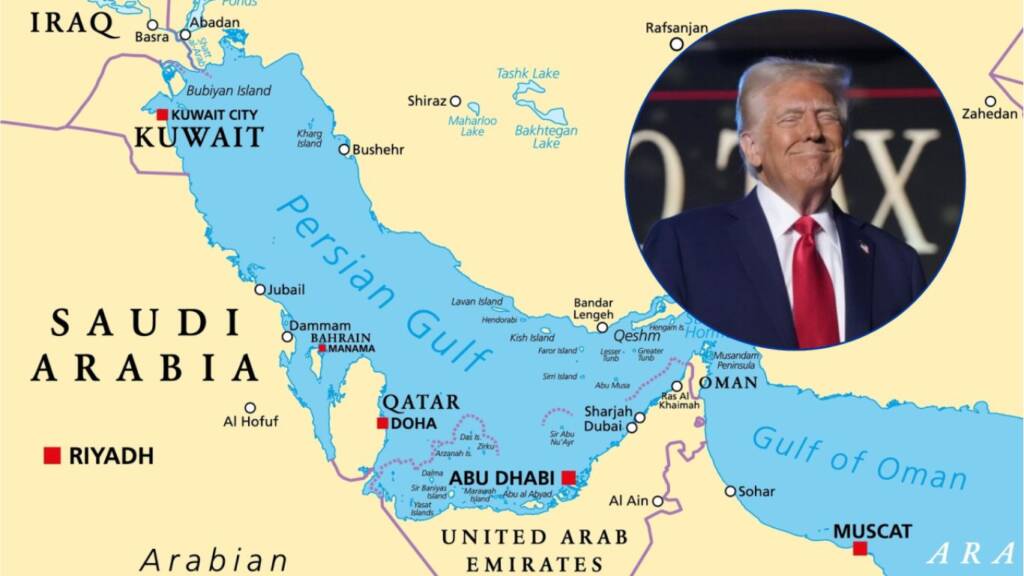US President Donald Trump has said he will make a decision on how the United States refers to the body of water commonly known as the “Persian Gulf” ahead of his upcoming visit to the West Asia. The statement comes amid reports suggesting the US may adopt the alternative term “Arabian Gulf” or “Gulf of Arabia,” a long-standing point of contention between Iran and several Arab nations.
Speaking to reporters at the White House on Wednesday, Trump acknowledged the sensitivity surrounding the name of the waterway. “I’ll have to make a decision,” he said. “I don’t want to hurt anybody’s feelings. I’m going to be given a briefing on that, and I’ll make a decision.”
The president is scheduled to travel to Saudi Arabia, Qatar, and the United Arab Emirates from May 13 to 16. According to US officials cited anonymously by the Associated Press, Trump is expected to announce a formal naming policy during this trip—his first to West Asia since returning to office.
The naming of the Gulf has long been a diplomatic flashpoint. Iran insists on the historical term “Persian Gulf,” citing centuries of usage in international treaties, maps, and documents. Arab states, including Saudi Arabia, the UAE, and Iraq, commonly refer to it as the “Arabian Gulf” or simply “the Gulf.”
Iranian officials reacted swiftly to the reports. Foreign Minister Abbas Araghchi described the potential change as “politically motivated” and warned that it would be seen as a sign of hostility toward the Iranian people. In a post on social media platform X, Araghchi wrote that “any short-sighted step in this connection will have no validity or legal or geographical effect,” and added that it would provoke a strong reaction from Iranians globally.
Past US administrations have largely used “Persian Gulf” in line with international norms, although the term “Arabian Gulf” has occasionally appeared in political discourse. During Trump’s first term in 2017, his reference to the waterway as the “Arabian Gulf” sparked criticism from Iranian leaders.
The issue of nomenclature, while symbolic, reflects deeper regional divides. Trump’s visit is expected to cover a range of strategic concerns, including economic partnerships, regional security, the Israel-Hamas conflict, and Iran’s nuclear program.
While the US may opt to use a different term in official communication, experts note that international bodies such as the United Nations and most global atlases continue to recognize the waterway as the Persian Gulf. The implications of a formal US shift in terminology remain to be seen.
